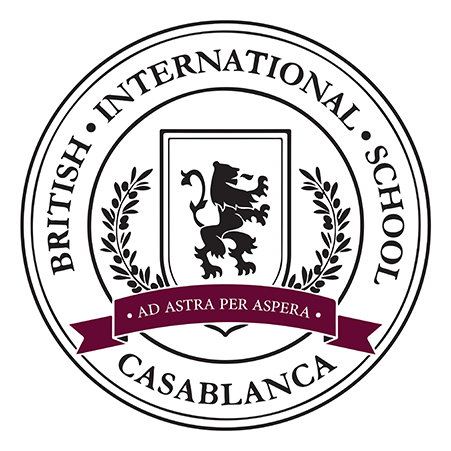- Phone: (+212) 520 500 200
- Email : [email protected]
Primary Curriculum - Non core Subjects
PRIMARY ART & DESIGN
The subject gives students a platform to express themselves, sparking imagination, creativity and
developing transferable skills. Students explore and push boundaries to become reflective, critical
and decisive thinkers. They learn how to articulate personal responses to their experiences.
Students develop creative skills that will help with many aspects of their future learning and
development. Students:
- Learn to see themselves as artists and become increasingly reflective and independent
- Develop the skills needed to express creative ideas and to communicate visually
- Understand their place and the place of others in a creative, innovative and interconnected world.
We teach Cambridge Primary Art & Design through a broad range of investigative, art-making and
reflective activities. These include several study areas, for example painting, print making, model
making or digital art. This course supports progression to Cambridge Lower Secondary Art & Design
PRIMARY DIGITAL LITERACY (ICT)
Digital literacy is an essential skill for learners of all ages, including the youngest primary students.
The digital world allows us to connect, collaborate, innovate and discover new information on an
ever-broadening scale, and students must be able to effectively use technology from the very
beginning of their educational journey.
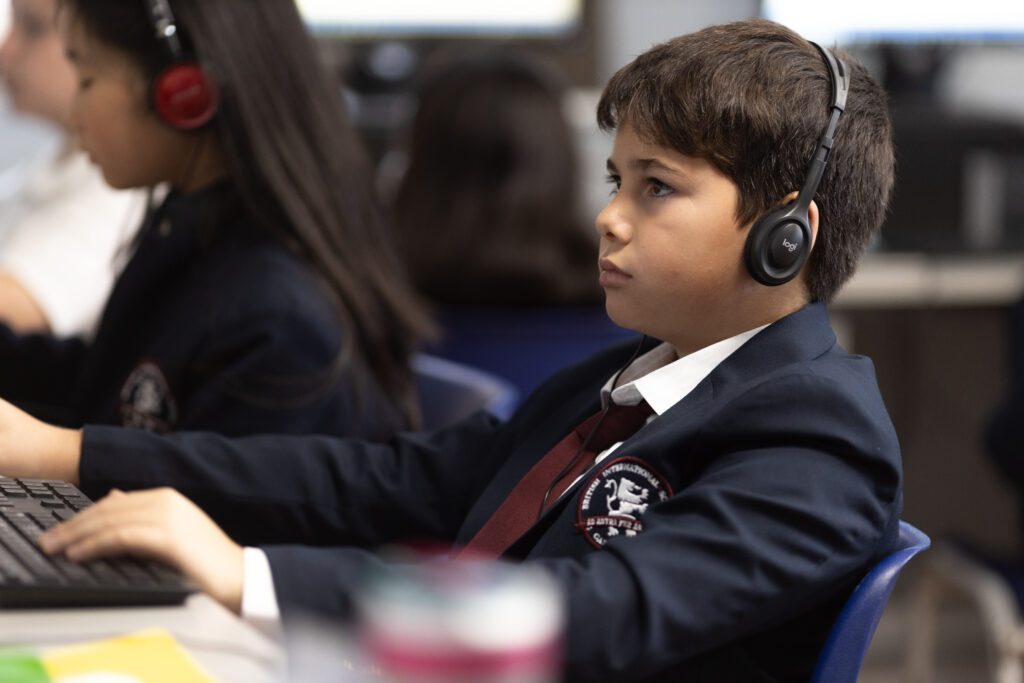
Students develop digital skills that will help with many aspects of their future learning and
development. They will:
-
Understand their place, and the place of others, in an interconnected world and make educated decisions about the information that they encounter online.
-
Develop knowledge and understanding that will allow them to respond to and evaluate technology of the future.
-
Develop skills to create increasingly sophisticated documents and presentations.
-
Learn how to become positive contributors to the digital world.
-
Use digital technology safely and protect their own physical and emotional wellbeing.
The emphasis of this course is for teachers to give students formative feedback on the skills they want them to develop. This can be through discussion, observation and lesson outputs where teachers discuss with students ‘what went well’ and how they can improve further, so that students
can reflect on, and improve, their performance.
HUMANITIES
For the Humanities in the Primary School, we have chosen to use the guidelines provided in the UK National Curriculum for both Geography and History. These are far richer in content and provide an excellent background for all students, regardless of their prior learning.
Our aim is to provide a high-quality education which inspires a student’s curiosity and fascination about the world that will remain with them for the rest of their lives. Our teaching equips students with the knowledge about diverse places, people, resources and natural and human environments, together with a deep understanding of the Earth’s key processes. As they progress, their growing knowledge about the World should help them to deepen their understanding of the interaction between physical and human processes.
A high-quality History education will help students gain a coherent knowledge and understanding of the past, as well as inspiring their curiosity in significant historical events. Teaching will equip them to ask perceptive questions, think critically, weigh evidence, sift arguments, and develop perspective and judgement. History helps students to understand the complexity of people’s lives, the process of change, the diversity of societies and relationships between different groups, as well as their own identity and the challenges of their time.
Therefore, the focus in History is about the student’s ability to note connections, contrasts and trends over time and develop the appropriate use of historical terms. Students regularly address and sometimes devise historically valid questions about change, cause, similarity and difference, and significance of certain key events.
PRIMARY MUSIC
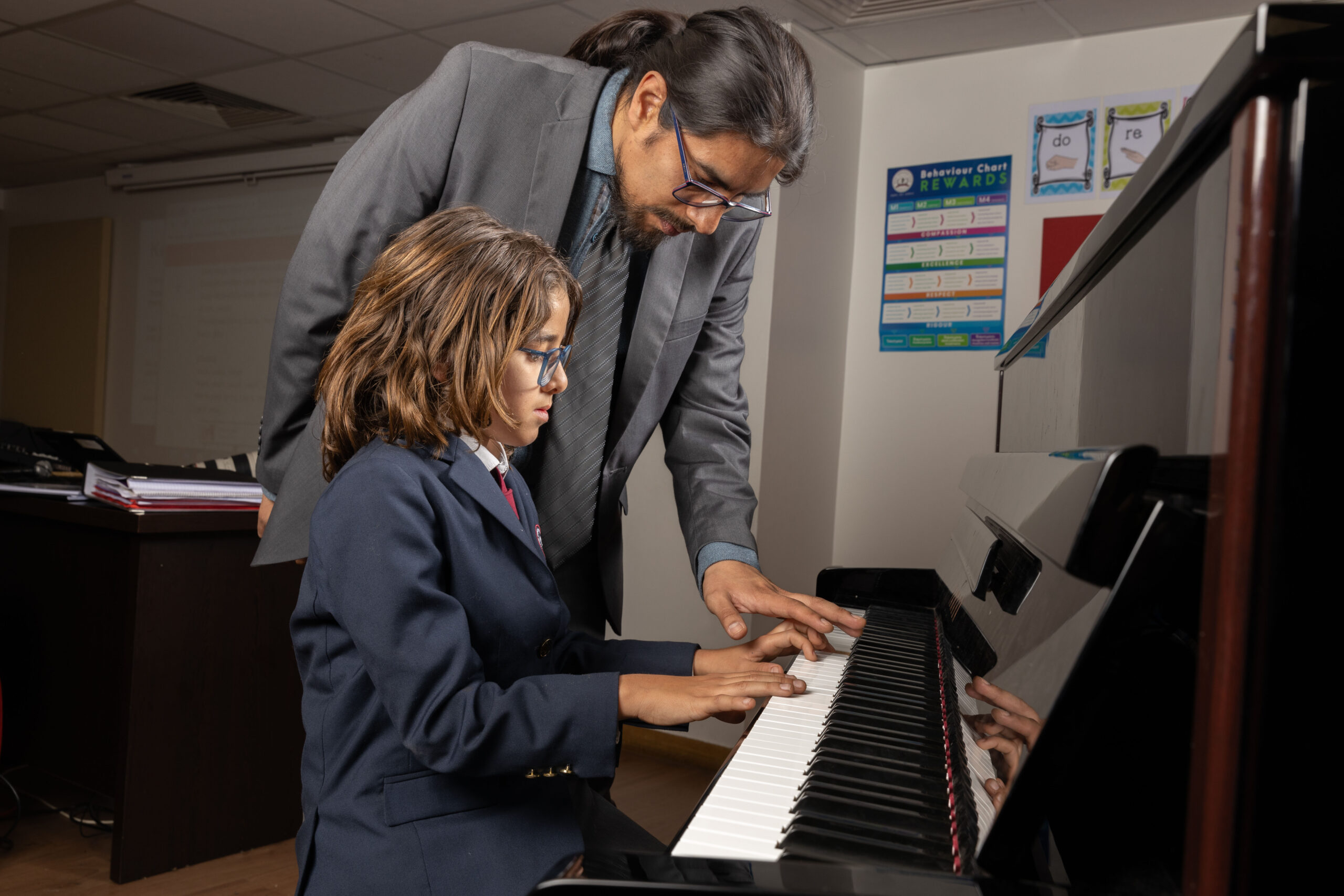
Music fosters creativity and builds confidence. It helps students to express themselves and shows
them the importance of communication as they learn to connect with other musicians and with
audiences.
Students explore music as performers, composers and informed listeners. They make, understand
and appreciate music from different cultures, times and places, helping them to develop leadership
and collaboration skills as well as self-confidence.
Students who follow the Cambridge Primary Music course
-
Cultivate a joy of music through participating in meaningful and enjoyable experiences
-
Develop the knowledge, skills and attitudes necessary to contribute as musicians
-
Collaborate with others in purposeful and expressive ways through singing and playing instruments
-
Nurture their individual and collective creativity
-
Use their growing knowledge to explore and generate music that is unique, relevant and valuable.
Students develop creative skills that will help with many aspects of their future learning and
development. The course supports progression to Cambridge Lower Secondary Music

Cambridge Primary Music is flexible so students can perform through singing and playing musical
instruments of any kind (as well as found objects and music technology). Students will experience
music from their own culture as well as exploring music from other times and places. The
programme complements rather than replaces instrumental or singing lessons.
The emphasis of this course is for teachers to give students formative feedback on the skills they
want them to develop. This can be through discussion, observation and lesson outputs where
teachers discuss with students ‘what went well’ and how they can improve further, so that students
can reflect on, and improve, their performance.
PRIMARY PHYSICAL EDUCATION
Physical education is a vital part of a balanced school curriculum. Regular exercise improves physical
and mental health and there is growing evidence that it improves academic performance across the
curriculum. Establishing good patterns of exercise in primary school provides students with the
foundation for an active and healthy lifestyle.
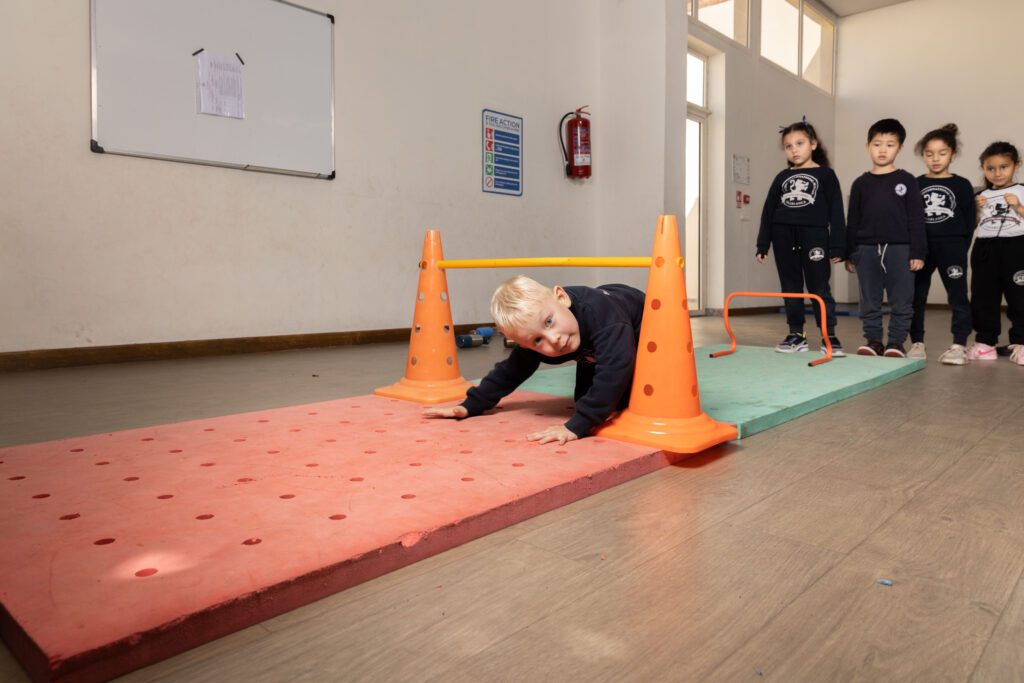
Students learn about learning to move and moving to learn. Students develop skills through a wide
variety of age-appropriate physical activities, including games, gymnastics and dance. As individuals
and team members, they will:
-
Increase confidence, moving with increasing control, fluency and variety.
-
Improve their understanding of concepts, rules, tactics, strategies and compositional ideas.
-
Participate in respectful and responsible ways, engaging appropriately and safely.
-
Improve knowledge and understanding of how physical education can contribute to a healthy and active lifestyle.
-
Develop transferable skills promoting physical, cognitive and social development and become independent, critical and reflective movers and thinkers.
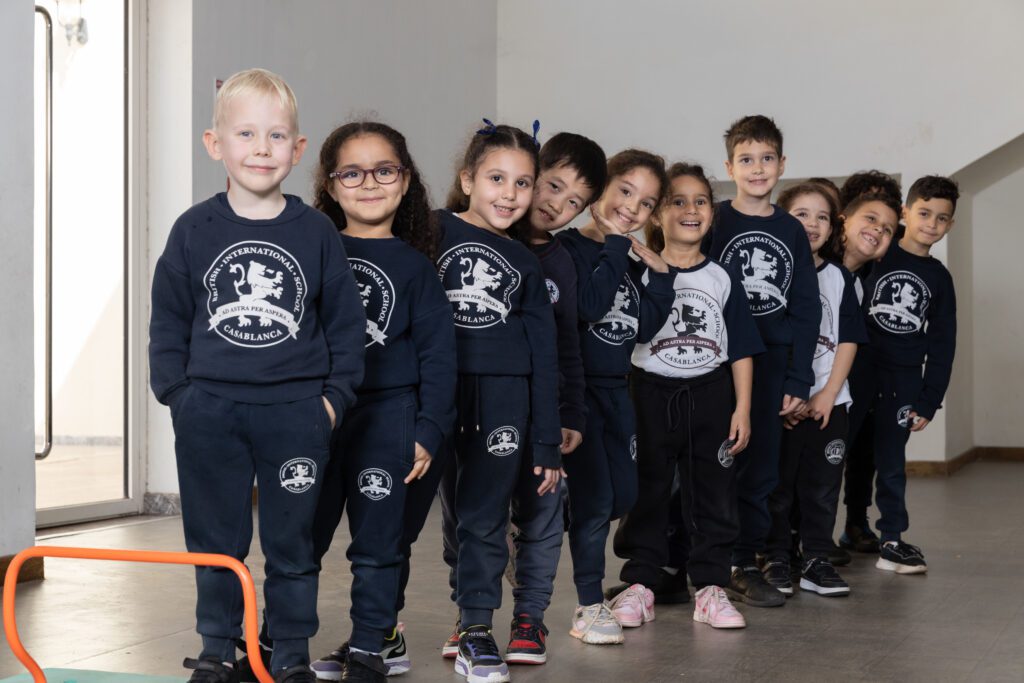
Students develop creative skills that will help with many aspects of their future learning and
development. The course supports progression to the Cambridge Lower Secondary Physical
Education.
We teach the subject through a broad range of tasks, challenges and physical activities. It includes
cooperative, competitive, athletic, adventurous and health-based contexts that are appropriate for
each learning stage.
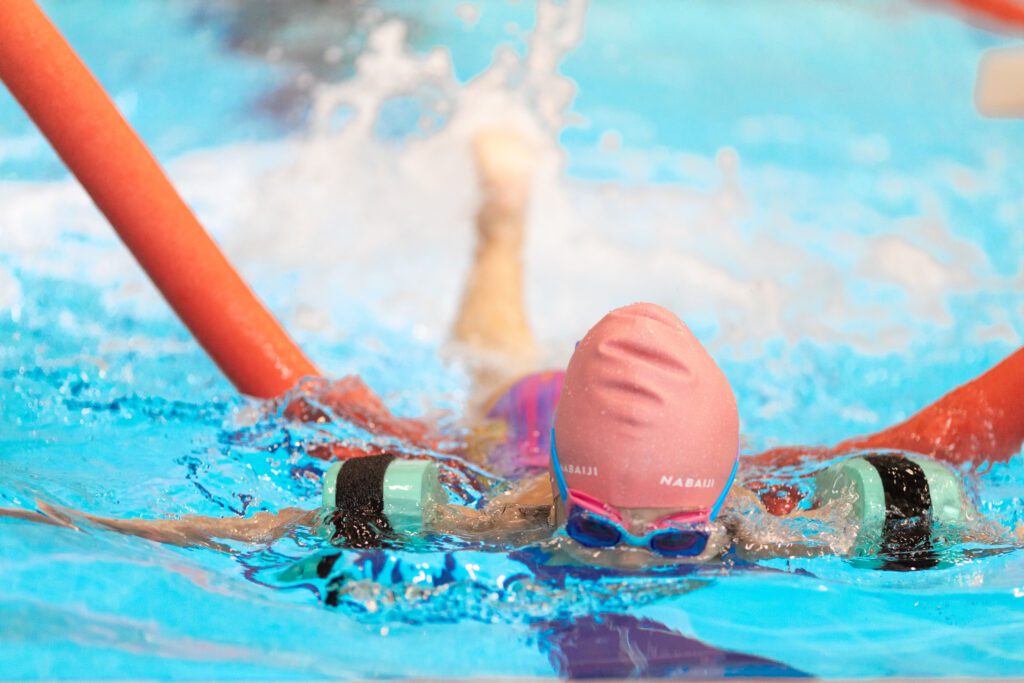
Students will move for as much of each lesson as possible, with activities designed promote
students’ confidence, self-esteem, cognitive abilities and social skills. Our programme is designed to complement, rather than replace, coaching in individual sports or physical activities, such as that provided by our Elite squads in Basketball, Football and Swimming.
The emphasis of this course is for teachers to give learners formative feedback on the skills they
want students to develop. This can be through discussion, observation and lesson outputs where
teachers discuss with students ‘what went well’ and how they can improve further, so that students
can reflect on, and improve, their performance.
